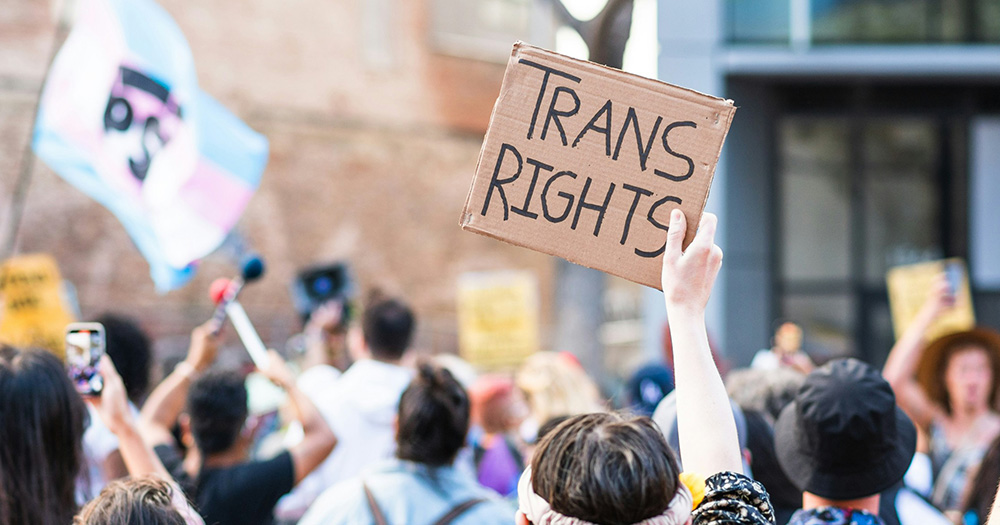The procurement or possession of puberty blockers to treat gender dysphoria could lead to prosecution in Northern Ireland. The news comes according to correspondence seen by Belfast Live between Health Minister Mike Nesbitt and Ministers Naomi Long and Andrew Muir.
In December 2024, a proposal to ban puberty blockers for under-18s was approved by all parties in the Executive, namely Sinn Féin, the Democratic Unionist Party (DUP), Ulster Unionist Party (UUP) and the Alliance Party. While it was initially believed that this would only apply to the sale, supply or prescription of the medication, it now appears that this is not the case.
In a joint letter from January 8, Long and Muir told the Health Minister, “A number of parents have already been obtaining or exploring the option of seeking treatment for their child in Dublin; however, they now have concerns about the consequences of doing so.”
The letter continued, “Whilst you were clear with Executive that it is the prescribing of puberty blockers that will be a criminal offence, and that being in possession of them as a patient will not be, parents are fearful that, in light of the ban, should they disclose to a medical or other professional that their child is taking this medication, they may be referred to Social Services or face other sanctions.”
The ministers requested assurance from Nesbitt that “no parent will face such a response for seeking treatment for their child outside the UK,” adding, “We are sure that you would agree that it would be placing children at greater risk were they and their parents not to disclose all of the medications which they are taking when seeking medical care, due to fear of prosecution or other sanctions.”
After receiving the letter, the Department of Health sought legal advice regarding the sanctions people may face should they try to circumvent the ban. The Department reportedly responded in line with this advice, the full version of which has been withheld.
In a heavily redacted letter, Nesbitt told Long and Muir that the information he originally provided to the Executive in December 2024 was “based on an incomplete assessment of the various scenarios that are now emerging.” He then confirmed that anyone who sells, supplies or imports puberty blockers in Northern Ireland, as well as those in possession of the medication contrary to the ban, will be committing an offence.
“The legal advice received makes clear that any breach of the Order is a criminal offence under the Medicines Act 1968, which also applies to those knowingly in possession of GnRH analogues which we been supplied to them contrary to the Order. These offences have existed in Northern Ireland since the making of the Medicines (Gonadotrophin-Releasing Hormone Analogues) (Emergency Prohibition) (Extension) Order 2024 on 27th August 2024,” Nesbitt wrote.
Speaking to Belfast Live, The Rainbow Project’s Policy, Campaigns and Communications Manager Alexa Moore shared, “When we met the Minister alongside a group of parents and the charity Mermaids, he told us that the ban was targeting the prescription and not the possession or administration of the drugs.”
She continued, “It is disappointing that this policy appears to have been developed with such haste and a lack of consideration for the potential implications for patients. We have been here before with individuals being criminalised for procuring and taking abortion medication, and I don’t think that anyone wants to go back there.
“We are now in a position where it is illegal to be in possession of these drugs, but if you drive an hour down the road, it is perfectly legal.”
Moore questioned whether or not this new information would have influenced Executive ministers’ decisions in December, explaining that the proposal was approved “in the pretext that this would not be the criminalisation of parents and that Northern Ireland would form part of the puberty blockers trials that were supposed to commence at the start of this year, but to date, we have heard nothing.”
She concluded, “Transgender people and their families have been left without any kind of support, and while the investment in services is welcome, but that will take a long time to bed in, and we know that this is having an impact right now.
“Yes, we will always welcome new research to ensure that the drugs are safe, but the reality is that these drugs have been prescribed for 30 years and the data is there on their long-term impacts.”
Want to stay up to date with the latest LGBTQ+ news? Join our WhatsApp Channel here.
© 2025 GCN (Gay Community News). All rights reserved.
Support GCN
GCN is a free, vital resource for Ireland’s LGBTQ+ community since 1988.
GCN is a trading name of National LGBT Federation CLG, a registered charity - Charity Number: 20034580.
GCN relies on the generous support of the community and allies to sustain the crucial work that we do. Producing GCN is costly, and, in an industry which has been hugely impacted by rising costs, we need your support to help sustain and grow this vital resource.
Supporting GCN for as little as €1.99 per month will help us continue our work as Ireland’s free, independent LGBTQ+ media.
